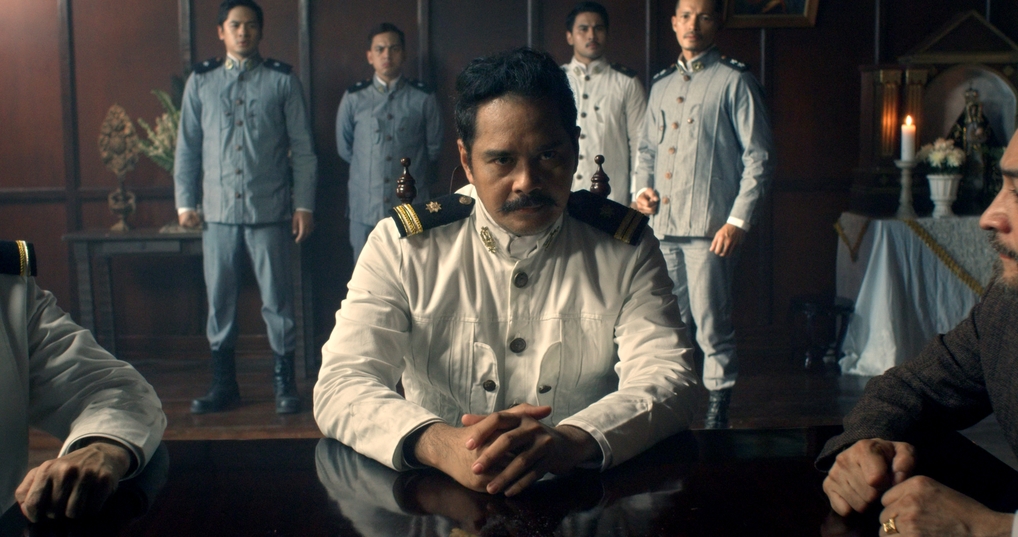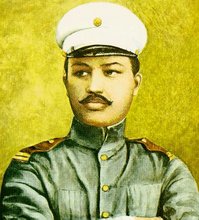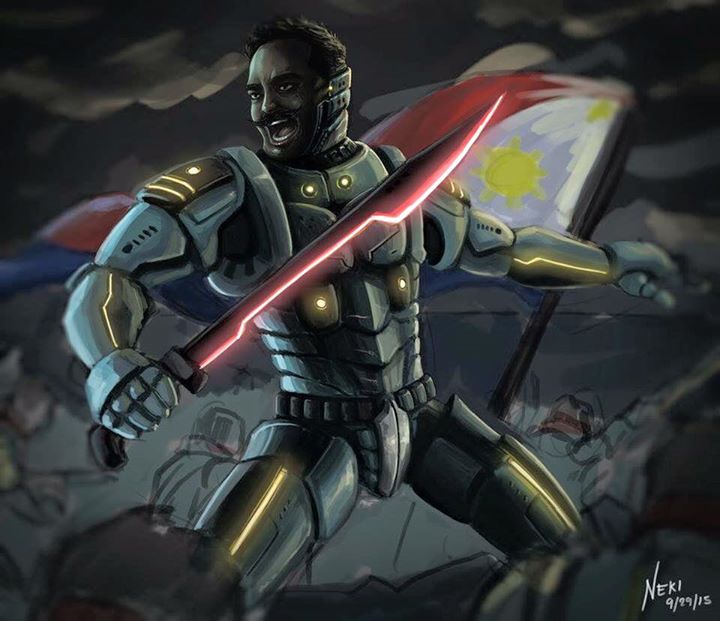Heneral Luna and the French
Soon after Islamic State (ISIS) terrorists began their massacre of Parisians on Friday the 13th of November, the spectators at a soccer match in Paris between France and Germany spontaneously and defiantly burst into singing the French National Anthem, the La Marseillaise, even though the stadium had just been bombed.
The following day, the Members of the French Parliament stood up to sing this anthem after French President Francois Hollande called on them and the French people to show “perseverance” and “unity” to deal with the worst-ever terrorist attack on French soil.
I fondly remember La Marseillaise when we sang it at Philippine Science High School while learning French in the late 1960s. Here are the English lyrics of the song that was written in 1792 by Claude-Joseph Rouget de Lisle:
Arise, children of our country
The day of glory has arrived
Against us tyranny’s
Bloody standard is raised
Listen to the sound in the fields
The howling of these fearsome soldiers
They are coming into our midst
To cut the throats of your sons and consorts
To arms citizens, form your battalions
March, march
Let impure blood
Water our furrows
What! These foreign cohorts!
They would make laws in our courts!
What! These mercenary phalanxes
Would cut down our warrior sons
Good Lord! By chained hands
Our brow would yield under the yoke
The vile despots would have themselves be
The masters of destiny
Tremble, tyrants and traitors
The shame of all good men
Tremble! Your parricidal schemes
Will receive their just reward
Against you we are all soldiers
If they fall, our young heroes
France will bear new ones
Ready to join the fight against you.
The words of the song remind me of a scene in the movie, “Heneral Luna,” when Gen. Antonio Luna, as the military commander of the Philippine Army, is imploring the members of the cabinet of President Emilio Aguinaldo to reject compromise and prepare to fight the invading American forces who were massacring Philippine villagers around Manila in 1899.
Gen. Luna may as well have used the words of this French song to warn his countrymen: “Listen to the sound in the fields, the howling of these fearsome soldiers, they are coming into our midst, to cut the throats of your sons and consorts… What! These foreign cohorts! They would make laws in our courts! What! These mercenary phalanxes would cut down our warrior sons.”
But Gen. Luna is addressing a cabinet filled with collaborators like Felipe Buencamino, Pedro Paterno and Emilio Aguinaldo, who either do not understand exactly what the American invaders intend to do with the Philippines or understand them all too well and seek commercial and political accommodation.
Gen. Luna likely knew the words of La Marseillaise as he was fluent in French as well as Spanish after studying chemistry at the Universidad de Barcelona in 1890 and obtaining his doctorate in chemistry at the Universidad Central de Madrid in 1893 where he published a scientific treatise on malaria. He went on to live in Paris with his painter brother, Juan Luna, while working as assistant to Dr. Latteaux and Dr. Laffen at the Pasteur Institute. In 1894, he returned to Manila to become the chief chemist of the Municipal Laboratory of Manila.
Though he was not a member of the Katipunan, Luna was arrested by the Spanish authorities in 1896 when the existence of the revolutionary organization was exposed. Luna was jailed in Fort Santiago for “participating” in the revolution and was then exiled to Spain in 1897, where he was imprisoned at the Cárcel Modelo de Madrid.
After the insurrection charge against him was dismissed in 1897, Luna studied field fortifications, guerrilla warfare, organization and other aspects of military science under Gerard Leman, who would later be the Belgian commanding general who defended the fortress at Liège against the German Army in 1914.
Because of his military training, Luna was appointed Commander of the Philippine Army by Emilio Aguinaldo in 1898 when he returned to Manila just as the Americans were beginning their military occupation of the Philippines.
As Richard Javad Heydarian wrote in his review of the Philippine Oscar entry for best foreign language film, “Heneral Luna,” in Huffington Post (“Philippines’ Forgotten Revolution: General Luna and the Quest for Independence,” 9/26/2015), “(i)t was his military genius that, in the initial stages of the war, inspired some sense of panic among invading Americans, who weren’t expecting a sophisticated resistance by the indigenous population. A product of modern education, Luna used cutting-edge military tactics against the West, trying to beat them in their own game.”
The New York Times’ Ken Jaworowski, described “Heneral Luna” as “a patriotic biopic” about a general who led the Philippine Revolutionary Army during the Philippine-American War. “Battles are waged, speeches are made and foreign enemies soon become the least of Luna’s problems: Bureaucrats, cowards and other homegrown spoilsports continually try to sabotage his unconventional plans. “General Luna, you may be a military genius, but you do not understand politics,” one of those skeptics whines.”
Jaworowski writes further: “The film, directed by Jerrold Tarog, portrays the general as a Patton-esque figure, bucking authority and doubters, all for love of country. There’s frequent grandstanding and staring off into the distance as the movie aspires to epicness. Even Luna’s adversaries admire him. ‘He must be the bravest man I’ve ever seen or the looniest lunatic this side of Frisco!’ an American general proclaims after Luna single-handedly charges the front line. Under fire. With only a revolver. On horseback.”
As Rigoberto Tiglao wrote in his Manila Times review of the movie, “(it) is a remarkable film that should fuel the embers of nationalism in this country. It should be viewed by every single Filipino, especially the youth, whether here or abroad. This is especially so because nationalism is at its lowest point in our history, or even, I’m afraid, on the verge of extinction.”
It is being buried even further by young historians like Nicole Del Rosario Cuunjieng who questions the motivations of revolutionary nationalists like Gen. Luna who, she speculates, may have just wanted “to be masters of the land…who nobody trusted would be anything but the new conquerors filling the shoes of the West.”
Even those Filipinos who oppose China’s current annexation of Philippine territories in the West Philippine Sea are being questioned for opposing Chinese imperialism because it may only lead to war with China and so much bloodshed. These historians warn Filipinos of the dangers of nationalism.
But James Fallows, writing for the Atlantic Monthly in November of 1987 (“A Damaged Culture”) observed that “Nationalism can of course be divisive, when it sets people of one country against another. But its absence can be even worse, if that leaves people in the grip of loyalties that are even narrower and more fragmented. When a country with extreme geographic, tribal, and social-class differences, like the Philippines, has only a weak offsetting sense of national unity, its public life does become the war of every man against every man. Nationalism is valuable when it gives people a reason not to live in the world of Hobbes–when it allows them to look beyond themselves rather than pursuing their own interests to the ruination of everyone else.”
I so envy the French. How I wish that when China started dredging our coral reefs in 2014 in order to create man-made islands out of our shoals in the West Philippine Sea that a Philippine president could go to the floor of the Philippine Congress as Hollande did in France and denounce the Chinese invasion and that Philippine legislators would then spontaneously stand up and sing the Philippine National Anthem as the French did.
Land dear and holy,
Cradle of noble heroes,
Ne’er shall invaders
Trample thy sacred shores.
But, alas, not one Philippine senator has ever denounced China’s invasive activities out of fear of alienating the influential Chinese Filipino billionaires who dominate the Philippine economy and who fund their election campaigns.
Alas, there are no Heneral Lunas in the Philippine Senate now, only pathetic replications of Felipe Buencamino, Pedro Paterno and Emilio Aguinaldo.
(Send your comments to Rodel50@gmail.com or mail them to the Law Offices of Rodel Rodis at 2429 Ocean Avenue, San Francisco, CA 94127 or call 415.334.7800).
Like us on Facebook


